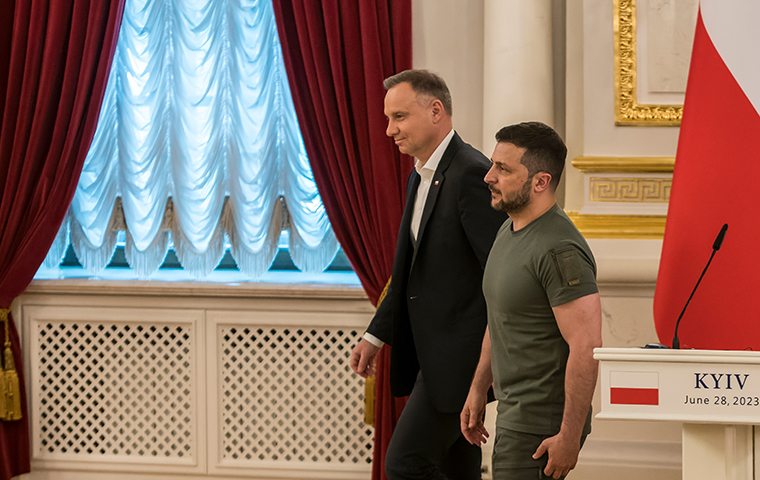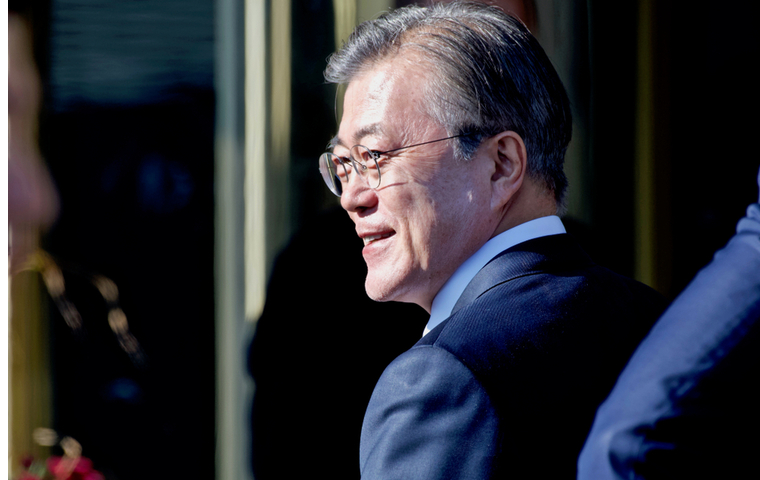Middle East Neutral over Ukraine amid Absence of Western Support for Yemen Conflict
Related Articles

The United Arab Emirates and the rest of the Gulf oil-producing countries, which abstained from the United Nations Security Council resolution condemning Russia in April, are reluctant to increase crude oil production further. Behind this is their discontent with the United States, which has indicated little interest in the ongoing conflicts in the Middle East, including the attacks by the Houthi group in Yemen.
The votes at the United Nations General Assembly on April 7 calling to suspend Russia’s membership in the UN Human Rights Council gave us an interesting insight into Middle Eastern countries’ attitudes towards the situation in Ukraine. Out of the 193 countries, 93 countries voted to support the resolution, while of the 21 countries in the Middle East, only three—Turkey, Israel, and Libya—voted in favor of the resolution.
However, most Middle Eastern countries hold a neutral position on the conflict. Only Syria, which receives military support from Russia, and Iran, which is in antagonistic relations with the United States, are defending Russia outright. Out of the 21 countries in the Middle East, 16 voted in favor of the resolution condemning Russia adopted by the UN General Assembly on March 2. They do not necessarily agree with Russia’s military aggression.
The Refusal of OPEC+ to Increase Oil Production
In light of the situation in Ukraine, there has been particular attention on the Gulf oil producers’ next moves. To strengthen the impact of the economic sanctions against Russia, it is essential to hit the country where it hurts—the crude oil and natural gas revenues that are the backbone of the Russian economy. If the Gulf countries move to increase crude oil production, they could replace Russian oil, which will also help curb soaring energy prices.
However, the Gulf oil producers have consistently rejected requests for unplanned production increases. Since 2016, the Organization of the Petroleum Exporting Countries (OPEC), led by Gulf oil producers, has been working in a cooperative framework called OPEC+ with 11 non-OPEC oil-producing countries (now ten since Equatorial Guinea joined OPEC), including Russia. When it comes to crude oil policies, OPEC prioritizes its agreements within OPEC+.
In April 2020, when crude oil prices fell sharply due to the impact of the COVID-19 pandemic, OPEC+ members agreed to drastically cut production by a total of 9.7 million barrels per day. The cartel is gradually unwinding the production cuts as the global economy recovers from the pandemic. In July 2021, OPEC+ agreed to ease the production cuts by increasing output by 400,000 barrels per day each month starting in August and continuing the cut until December 2022. If the easing of the production cuts continues at this pace, the reduction implemented during the height of the pandemic will be unwound entirely by the end of 2022.
Therefore, the Gulf oil-producing countries are in the process of implementing planned production increases based on an international agreement and cannot easily respond to demands to increase production irregularly simply due to geopolitical factors. In fact, more than a year before the start of the Russian military invasion of Ukraine, OPEC+ members often missed production targets. This is partly due to the lack of investment in the expansion of crude oil production capacity against the backdrop of the global decarbonization trend.
In addition, as oil producers cannot predict the scale and duration of the exclusion of Russian crude oil from the market, it is too risky for them to expand their production capacity without knowing how many medium-to-long-term buyers there are. Considering that the OPEC+ agreement will expire at the end of 2022, there is not much political or economic merit to scrapping the existing agreement ahead of schedule and increasing production at the expense of Russia’s disapproval.
Ukraine Is Not the Only Conflict

Behind the cold reaction of the Middle Eastern countries is that local conflicts are more critical security issues than the war in Europe in which the local public is little interested. Among oil-producing countries, Saudi Arabia and the United Arab Emirates have the most capacity to increase production. The oil consumers had high expectations for the two to replace Russian crude oil. But both countries have acted in ways that could be seen as Russia-leaning by prioritizing their commitment to the Yemeni conflict.
The UAE abstained from voting in the February 25 UN Security Council resolution condemning Russia, along with China and India. It has been speculated that this was because another UN Security Council resolution tabled by UAE calling for the designation of the Houthis in Yemen as a terrorist organization was scheduled for a vote three days later, on February 28.
In January, the UAE suffered its first deaths on the mainland caused by drone and missile attacks by the Houthis, making tightening sanctions on the enemy a top national security priority. The UAE could not count on strong support from the U.S. as the Biden administration had removed Houthis from the list of foreign terrorist organizations. For the Security Council resolution to be successfully adopted on February 28, UAE needed to obtain support from Russia, which had vetoed a past resolution on the Houthis.
In March, when an attack by the Houthis damaged oil facilities in Saudi Arabia, Saudi Arabia’s foreign ministry issued an unusual statement that the country “will not incur any responsibility for any shortage in oil supplies to global markets in light of the attacks on its oil facilities from the Iranian-backed terrorist Houthi militias.”
The statement, which seemed intended to trigger fear of further oil instability, could be taken as a message to the West that if they want Saudi to increase crude oil production amidst the Ukraine conflict, they need to support the Kingdom in the Yemen conflict.
Dissatisfaction with the Biden Administration
Saudi Arabia and the UAE are seen as Russia-leaning due also in large part to their strained relations with the Biden administration. The main reason for this is the inaction of the U.S. to support them in the Yemen conflict. But there were also several diplomatic misunderstandings not directly related to national policy. In mid-April, it was reported in the U.S. that its National Security Advisor Jake Sullivan brought up the Khashoggi incident when he met with Saudi Crown Prince Mohammed in September 2021, enraging the crown prince. In addition, the UAE was strongly dissatisfied that the U.S. Central Command Commander took days to visit the UAE after the Houthis attacked the country in January. The U.S. Secretary of State Anthony Blinken reportedly had to apologize to the then Crown Prince Mohammed of the UAE.
On March 8, it was reported that Saudi Arabia and the UAE both rejected President Biden’s requests for phone calls. They may have intended to express discontent with the Biden administration. The two countries enjoyed a close relationship with the U.S. during the Trump administration, but their stance on placing the U.S. as the most crucial security partner has not changed. Both Saudi Arabia and the UAE are well aware of the risks that come with siding with Russia, which is heading toward defeat on the battlefield in Ukraine.
Ultimately, the Gulf oil-producing countries may perceive the Ukraine war as nothing more than leverage they use in their policies toward the U.S. Putting aside the moral question of whether it is wrong or right, we should not underestimate the fact that there is frustration brewing among these countries toward the West’s attempts to distance themselves from the conflicts in the Middle East.
This article is a translation of the Japanese original published in vol.73 (May/June 2022) of Gaiko (Diplomacy) magazine.
Takuya Murakami is a president and senior fellow at the Institute for Middle East Strategic Studies. He is an expert in security and international relations in the Gulf region. He worked as a researcher at the Embassy of Japan in the Sultanate of Oman, a research fellow at the Middle East Institute of Japan, and a senior research analyst at Mitsubishi Corporation.




